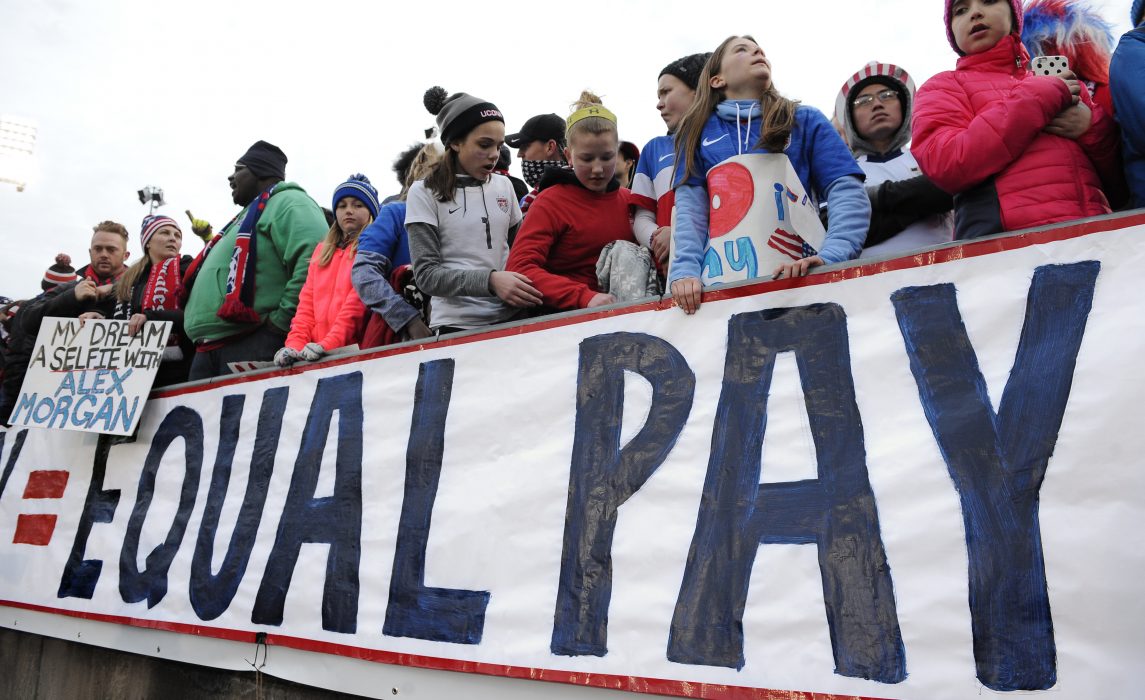
On behalf of the National Women’s Law Center (NWLC) and the Labor Council for Latin American Advancement (LCLAA), we requested final judgment in Plaintiffs’ favor in our lawsuit challenging the Office of Management and Budget (OMB) and the Equal Employment Opportunity Commission’s (EEOC) unlawful rollback of equal pay protections. The new legal filing demonstrates that OMB failed to conduct its own analysis, ignored analysis by the EEOC, and acted solely on requests from corporate lobbyists — in violation of the Administrative Procedure Act — when it halted a requirement that large companies disclose basic demographic information about how they pay their employees.
Without the requirements, more than 60,000 employers—who collectively employ 63 million workers—are empowered to continue shielding race and gender pay gaps from scrutiny.
In August 2017, in one of her first actions as President Trump’s “regulatory czar,” Office of Information and Regulatory Affairs (OIRA) Administrator Neomi Rao issued a memorandum that was barely over one page long claiming there was no “practical utility” to the equal pay data collection and directing the EEOC to halt the collection. Rao offered virtually no explanation for the decision to ignore six years of analysis by the EEOC concluding that employee pay data was critical to enforcing the nation’s anti-discrimination and related civil rights laws and to reverse OIRA’s prior approval of the exact same pay data collection. Without the requirements, more than 60,000 employers—who collectively employ 63 million workers—are empowered to continue shielding race and gender pay gaps from scrutiny.
As a result of our lawsuit, a federal court compelled the Administration to release the full Administrative Record revealing all analyses it relied upon in its decision to stay the equal pay tool. The Administrative Record reveals that:
- OMB conducted no analysis of its own in halting the pay data collection.
- The Administration failed to consider the impact that the elimination of the pay data collection would have on the EEOC’s antidiscrimination mission and the urgent need to close the wage gap.
- While the Administration attempted to justify the stay by parroting disproven complaints from the Chamber of Commerce and other business-backed lobbyists that pay data collection is burdensome, the Administration failed to consider any comments it received in support of pay data collection.
Defendants withheld from the Administrative Record an internal government memorandum that disavows the stated reason for the stay of the pay data collection. This memorandum states that the only concrete justification the Administration provided was “not a significant change that warrants … reconsideration.” We have requested that the Court consider this document.
Evidence separately obtained through Freedom of Information Act (FOIA) investigations revealed that industry lobbyists who objected to equal pay transparency had frequent access to OMB leadership, including Rao and then-OMB Director Mick Mulvaney, and repeatedly requested the rescission of the equal pay tool between February and August 2017. In that same period of time, OIRA failed to respond to requests from NWLC, with support from 82 other civil rights and women’s organizations, to meet with equal pay stakeholders to hear their views on the importance of the tool.
The government’s unpersuasive defense of Rao’s decision to halt equal pay transparency requirements, which the EEOC found necessary to enforce anti-discrimination laws, come as recent news reports highlight Rao’s hostile writings on race, date rape, LGBT rights, gender and feminism. These op-eds and other writings are consistent with actions this Administration has taken to harm survivors of sexual assault and sabotage health care, among other unlawful actions.
We have requested that the court rule in time for the equal pay data collection to be implemented in March.